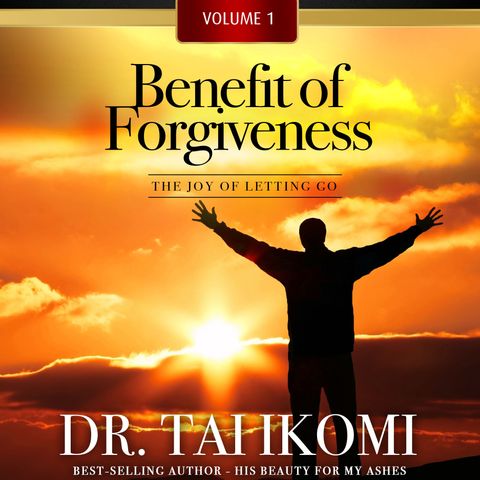Are you in pain because of an emotional wound? Try this.

Scarica e ascolta ovunque
Scarica i tuoi episodi preferiti e goditi l'ascolto, ovunque tu sia! Iscriviti o accedi ora per ascoltare offline.
Descrizione
When we are offended, we say we are hurt. However, the only viable way of getting rid of the hurt, as unlikely or illogical as it may seem, is to...
mostra di piùBeing unforgiving brings emotional pain
After being offended, we often do not want to forgive; for us, it is of the utmost importance to hold on to the emotional pain. Saul, the first king of Israel, was a casualty of an unforgiving heart. He could not forgive David, whom he perceived as a rival to his throne. He was so absorbed with this thought that he became an emotional wreck. He threw himself a pity party because he was “beat up.” After making so many futile attempts to kill David, he told his servants,\
That all of you have conspired against me, and [there is] none that sheweth me that my son hath made a league with the son of Jesse, and [there is] none of you that is sorry for me
(1 Samuel 22:8).
These words depict someone entrenched in a great deal of inner pain and turmoil. The king of one of the most powerful nations of his day was begging his officials to identify with his pain. The inner turmoil was more that he could bear. Being unforgiving will have its toll on its victim, no matter who they are.
Many of us are carrying so much hurt in our hearts; we harbor pain that has grown in size and in depth over the years. We wear the open wound of a friend’s betrayal, of a mother who was not there for us, of a boss who passed us over for a promotion, of a sibling who is always on our case. So many open wounds that have been cemented under the rubble of other events. Sometimes, we forget the offense, but the wound that has not bounded up and healed still gnaws at our hearts.
Sometimes, we get used to it. At other times, we learn to manage it. Sometimes, we do not even know they are there or how they got there in the first place. Our life is no longer as optimal as the Creator originally designed it to be. No amount of success can eradicate the unabated inner turmoil that threatens us daily.
A merry heart maketh a cheerful countenance: but by sorrow of the heart the spirit is broken (Proverbs 15:13).
Forgiveness heals our pain
The way we can get rid of the hurt, as unlikely or illogical as it may seem, is to release the offender from the offense. Healing in this way is possible because it is the offense that makes us feel pain, and once it is released, the pain automatically leaves with it. To put it another way: when we are offended, our emotions are struck with a blow; yet when we forgive the offender, our emotions are healed. The hurt no longer has a hold on our emotions. The hold has been broken! Forgiveness is like a balm that travels to the deepest part of our heart to soothe the inner pain, and forgiveness becomes its own reward.
A merry heart doeth good [like] a medicine: but a broken spirit drieth the bones (Proverbs 17:22).
When we choose to obey God, we enjoy the benefits of forgiveness, one of which is joy. Sometimes we ask, “How can I forgive my friend who hurt me so much?” or “How can I forgive my husband after all he did to me?” We must remember that forgiveness brings healing. Forgive in order to heal the pain.
In conclusion, emotional healing and forgiveness are intertwined. Forgiveness is God’s tool in healing those who have been wounded. Arise from among the slain, and live and breathe again through the power of forgiveness.
Forgiveness Prayer
Lord, I forgive those who have hurt me. Lord, help me to release them. In this way, I not only follow your commandment, but also receive my healing. Help me to see the various patches of pain that I have carried for so long and grant me the grace to forgive and be free in Jesus’ name. Thank you Lord.
Discussion
1.Discuss a few moments when you held on to emotional pain. How did you let go?
2.What did you take away from the story about Saul and David?
3.Have you ever held on to a grudge for a long period of time? What were the consequences?
4.What is the most important lesson you’ve learned in this chapter?
Informazioni
| Autore | Tai Ikomi |
| Organizzazione | Tai Ikomi |
| Sito | - |
| Tag |
Copyright 2024 - Spreaker Inc. an iHeartMedia Company
